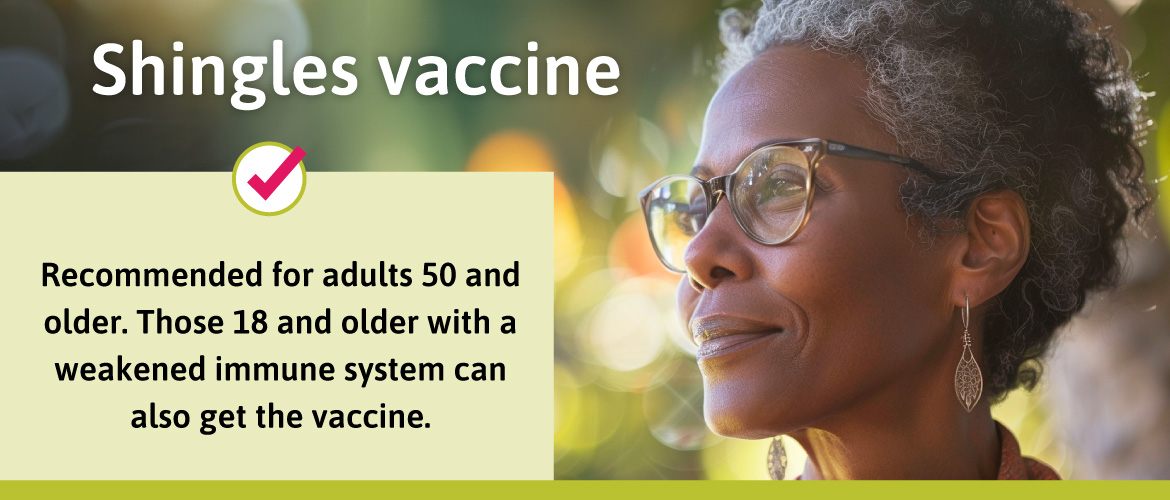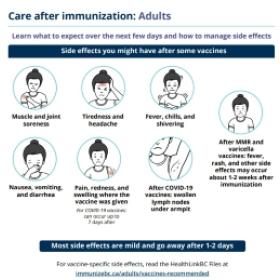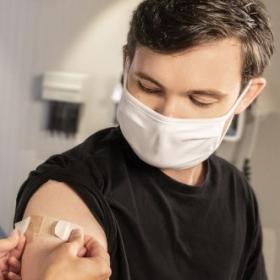On March 31, the ImmunizeBC website will move over to HealthLinkBC.ca After this date, you will be automatically redirected to HealthLink BC’s Immunization landing page. HealthLink BC provides trusted health information online and over the phone 24 hours a day, seven days a week by calling 8-1-1.
Date last reviewed:
Tuesday, Oct 15, 2024
HealthLinkBC
Available in عربى (Arabic), Français (French), یسراف (Farsi), 한국어 (Korean), ਪੰਜਾਬੀ (Punjabi), and other languages.

Disease it protects against
The shingles vaccine (Shingrix®) protects against:
- Shingles
Shingles is a painful skin rash with blisters caused by the varicella zoster virus, the same virus that causes chickenpox. In some people who have had chickenpox, the virus can reactivate later in life and cause shingles. Shingles is more common in people over 50 years of age and in those with weakened immune systems. Learn more about shingles.
Fact
Did you know?
About 1 in 3 unimmunized people will develop shingles in their lifetime. Among those who get shingles, about 1 in 5 may experience severe pain that can last for months or even years after the rash goes away.
Who should get the vaccine
The Shingrix® vaccine is recommended for adults 50 and older. It is given as a 2-dose series, with the second dose given 2 to 6 months after the first.
You should get the vaccine even if you:
- Have had shingles.
- Received a live virus shingles vaccine. You should wait at least 1 year before getting Shingrix® if you received a live virus shingles vaccine. The live virus shingles vaccines are no longer available in Canada.
- Are not sure if you had chickenpox (varicella) infection in the past.
People 18 years of age and older with a weakened immune system can also get the vaccine.
How to get the vaccine
The shingles vaccines is not publicly funded (free) in BC. You can buy the vaccine at most pharmacies and travel clinics. Some health insurance plans may cover the cost of the vaccine. Check with your insurance provider.
How well it works
The vaccine prevents more than 90% of cases of shingles in adults 50 years and older. In adults 18 years and older with a weakened immune system, the vaccine prevents about 70%-90% of cases of shingles.
For those who still get shingles after being immunized, the vaccine can reduce pain, including the type of pain that lasts after shingles.
Fact
Did you know?
You cannot get shingles from someone who has shingles. However, it is possible for someone who has not had chickenpox or the chickenpox vaccine to get chickenpox from someone with shingles.
Safety
Vaccines are very safe. Getting the vaccine is much safer than getting one of the diseases. Vaccine safety is a top priority in Canada, and every vaccine must be shown to be safe and effective before it is approved for use in Canada. After approval, the safety of vaccines is continuously monitored. Learn more about vaccine safety.
Side effects
Many people have no side effects from vaccines. For those that do, they are usually mild and go away on their own within a few days. Serious side effects are very rare.
Side effects of the shingles vaccine can include:
- Soreness, redness and swelling where the vaccine was given.
- Headache, fever, muscle soreness, fatigue, shivering.
- Nausea, vomiting, diarrhea and stomach pain.
Guillain-Barré syndrome (GBS) is a rare condition that can result in weakness and paralysis of the body's muscles. GBS may occur in about 3 in 1 million people who get the shingles vaccine.
It is important to stay in the clinic for 15 minutes after getting any vaccine because there is an extremely rare chance of a life-threatening allergic reaction called anaphylaxis. If anaphylaxis happens, you will be given medicine to treat the symptoms.
Let your immunization provider/clinic or health care provider know if you or your child have any serious or unexpected side effects after immunization.
How to manage side effects
For information on how to manage side effects, view the immunization aftercare sheets below.
Who should not get the vaccine
Speak to your health care provider if you have:
- Have had a life-threatening reaction to a previous dose of the vaccine or to any part of the vaccine.
- Currently have shingles.
- Are pregnant or breastfeeding.
- Have a history of Guillain-Barre Syndrome.
There is no need to delay getting immunized because of a cold or other mild illness. However, if you have concerns, speak with your healthcare provider.
Shingles quick facts
- What it is
-
Shingles is a painful skin rash with blisters. It is caused by the varicella zoster virus, the same virus that causes chickenpox. In some people who have had chickenpox, the virus becomes active again later in life and causes shingles.You cannot get shingles from someone who has shingles. However, it is possible for someone who has not had chickenpox or the chickenpox vaccine to get chickenpox from someone with shingles. This is uncommon and requires direct contact with the fluid from the shingles blisters.
- Symptoms
-
Shingles usually appears as a rash on one side of the face or body. The rash may last for 2 to 4 weeks. Before the rash appears, some people may experience pain, itching or tingling of the skin. Other early symptoms of shingles include fever, headache, nausea and chills. The most common symptom of shingles is pain, which can be severe.
- Risks
-
About 1 in 5 people who get shingles may have severe pain that lasts months to years after the rash has cleared. This is known as post-herpetic neuralgia. Rare complications of shingles include pneumonia, loss of hearing or vision, scarring, inflammation of the brain (encephalitis) or death.



